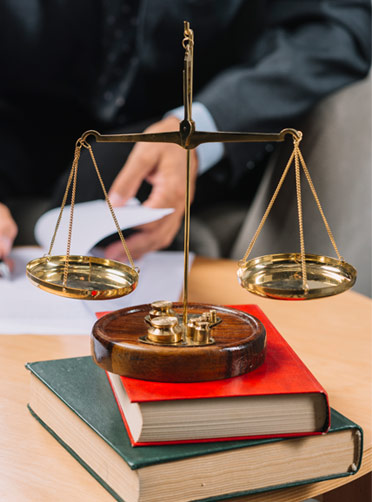The Importance of Criminal Lawyer
A criminal lawyer specializes in defending individuals or organizations accused of criminal offenses. They play a crucial role in ensuring that their clients' rights are upheld throughout the legal process, from the initial investigation to the final verdict. Criminal lawyers assess evidence, challenge prosecution claims, negotiate plea deals, and represent their clients in court. Their expertise spans a wide range of criminal offenses, including theft, assault, drug offenses, and more serious charges like murder or fraud. With their knowledge of criminal law and courtroom strategy, criminal lawyers work diligently to secure the best possible outcome for their clients, whether that means securing an acquittal, negotiating a reduced sentence, or achieving a fair plea agreement.

Choosing Right Advisor
A criminal lawyer specializes in defending individuals charged with criminal offenses, offering legal representation from investigation through trial. They ensure that their clients' rights are protected and provide expert guidance on navigating the complexities of the criminal justice system.
Criminal lawyers evaluate evidence, challenge prosecution claims, and negotiate plea deals. Their goal is to secure the best possible outcome, whether that’s a dismissal, acquittal, or reduced sentence, using their deep understanding of criminal law and courtroom procedures.

Our Working Process
-
Received Case
A received case refers to a legal matter officially accepted and recorded by a law firm or court for action.
-
Analize Report
An analyze report reviews case details to identify key insights and guide legal strategy.
-
Steps Forward
Steps Forward outlines the next actions to move a legal case ahead.
-
Law Success
Law success is achieving a favorable outcome through effective legal strategy and representation.
Reasonable Solution
A reasonable solution is a fair and practical resolution to a problem or dispute that takes into account the interests and concerns of all parties involved. It involves a balanced approach, aiming to achieve an outcome that is both legally sound and mutually acceptable. In legal matters, a reasonable solution often means finding a compromise that avoids prolonged litigation while still protecting the rights of those involved. By focusing on cooperation and understanding, a reasonable solution can help resolve conflicts efficiently and effectively, ensuring that all parties are treated fairly and that legal obligations are met.







